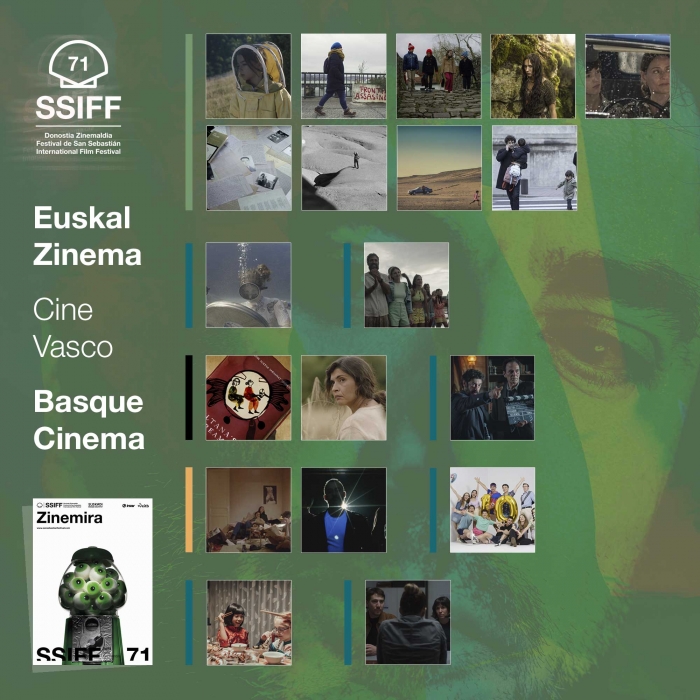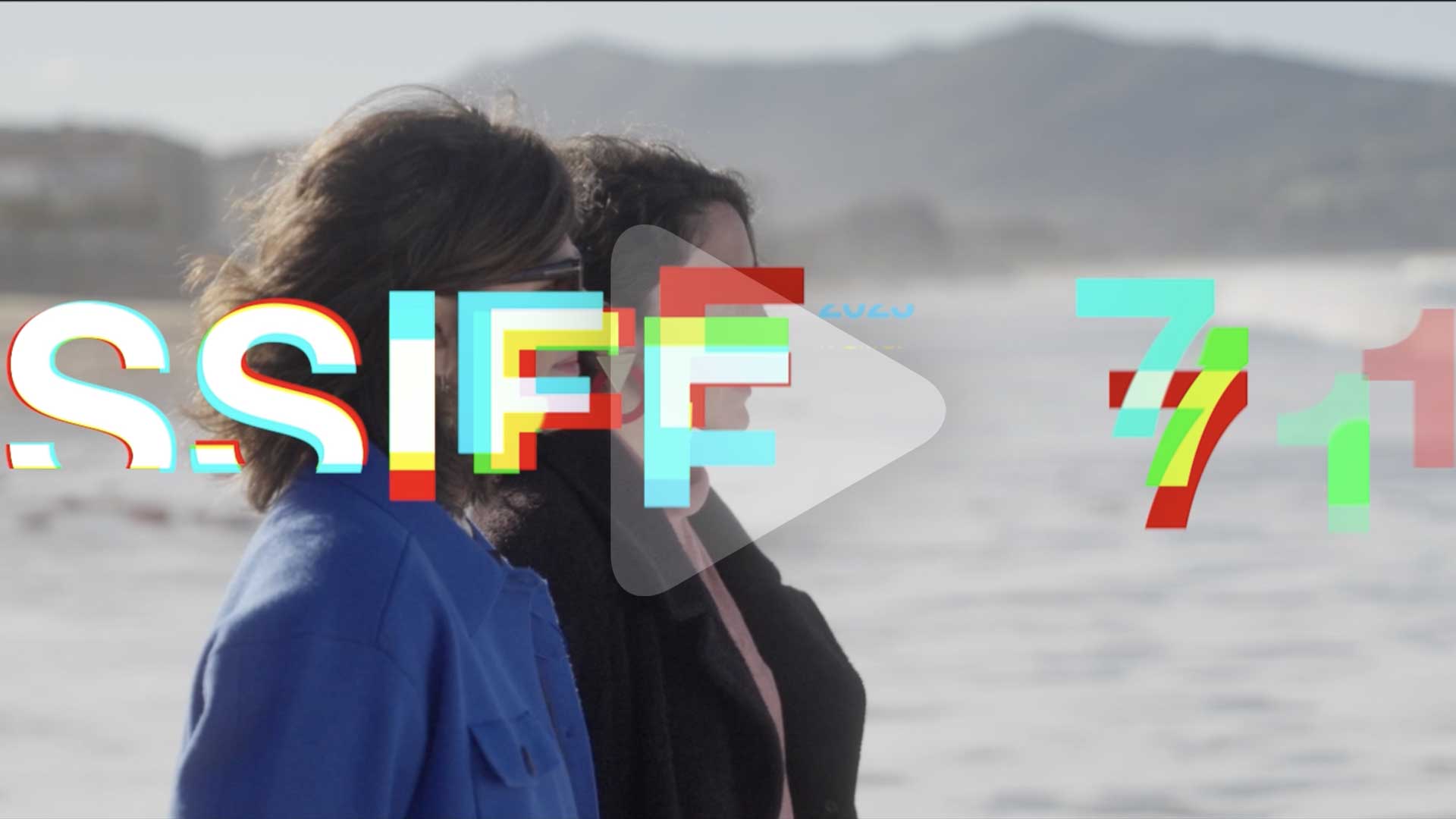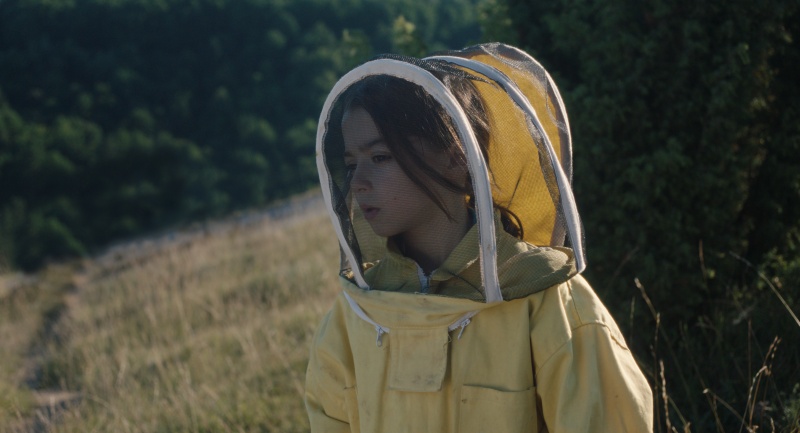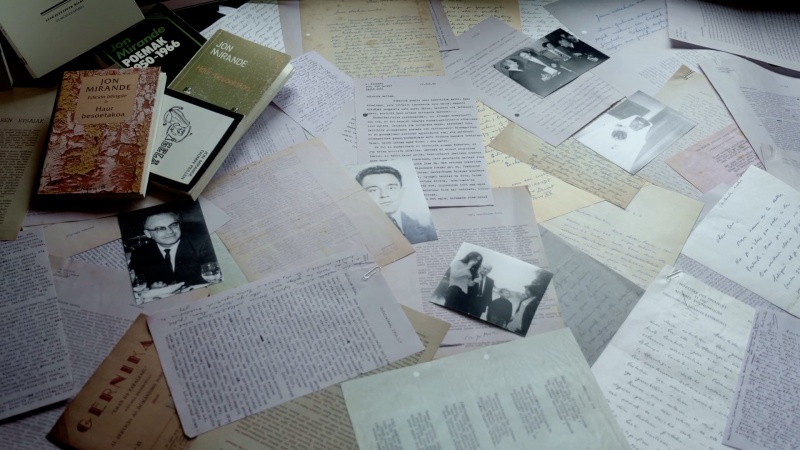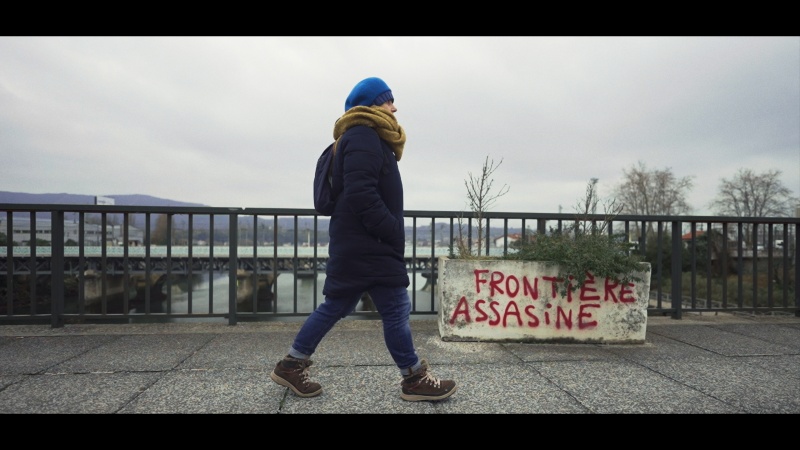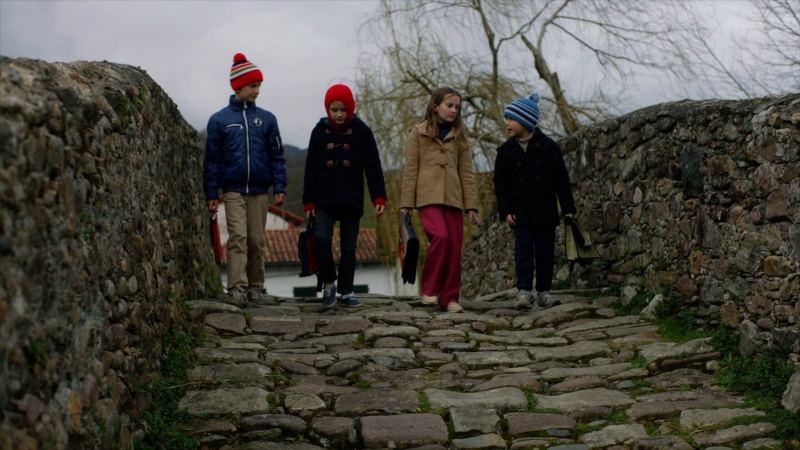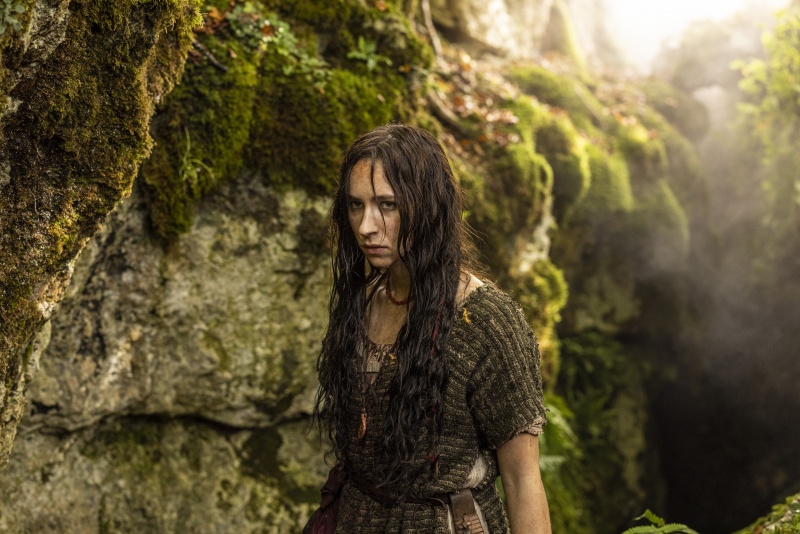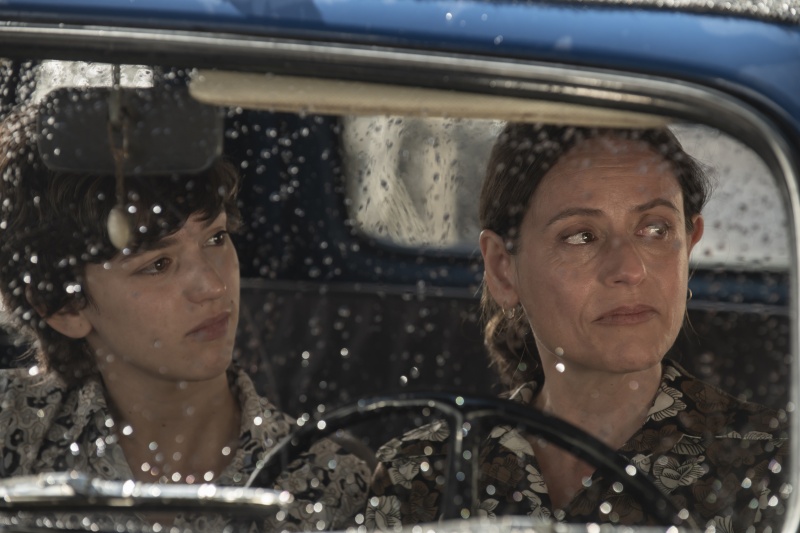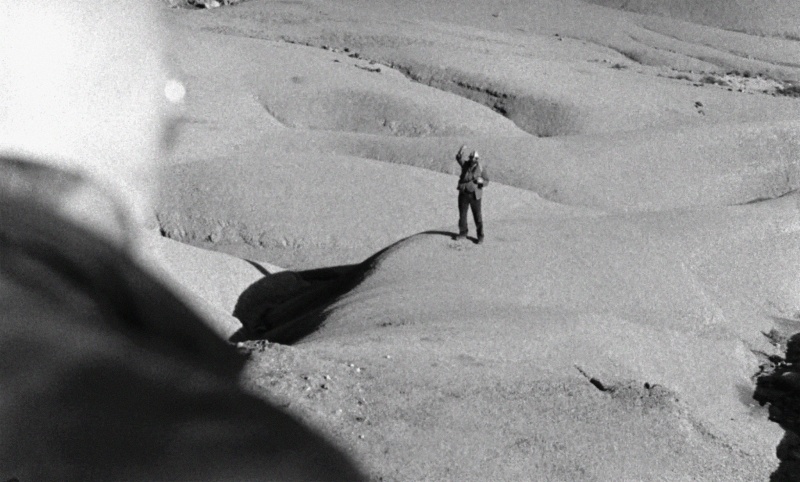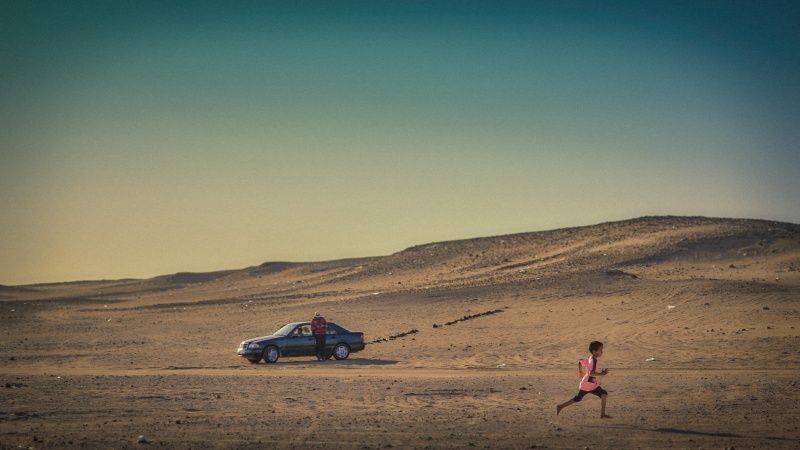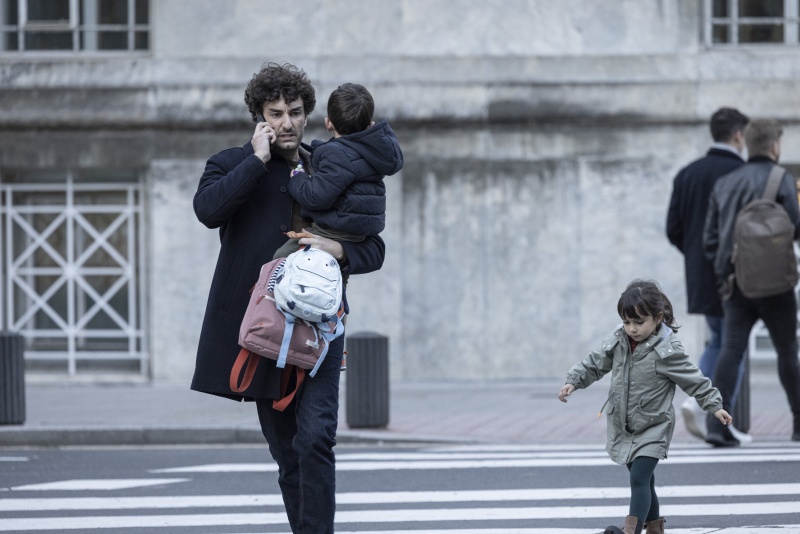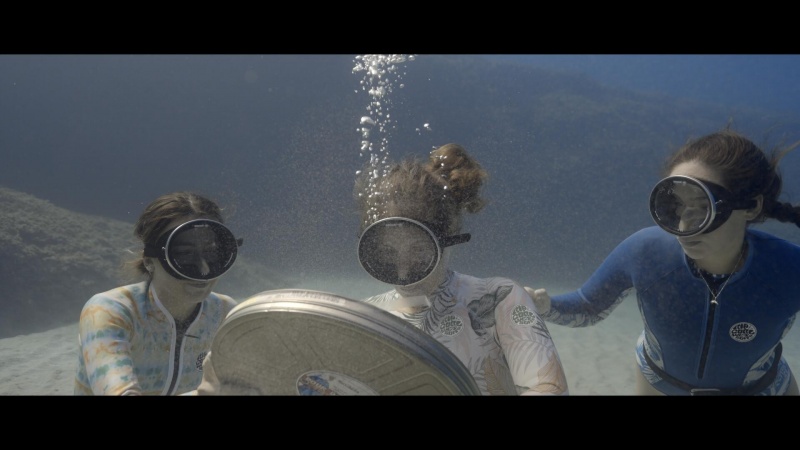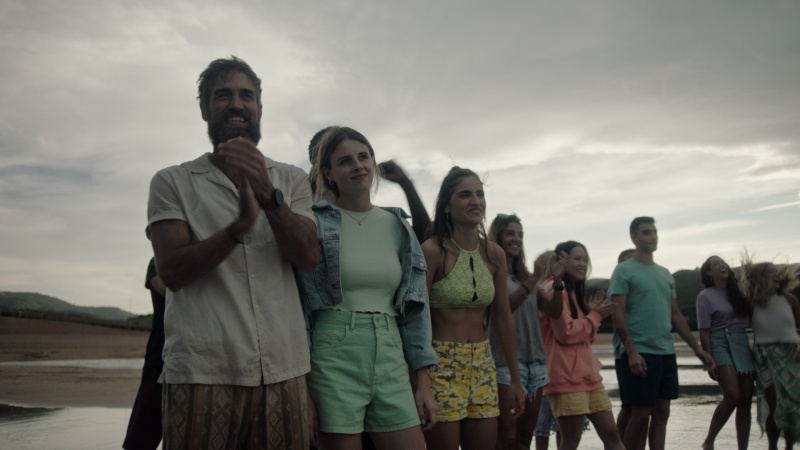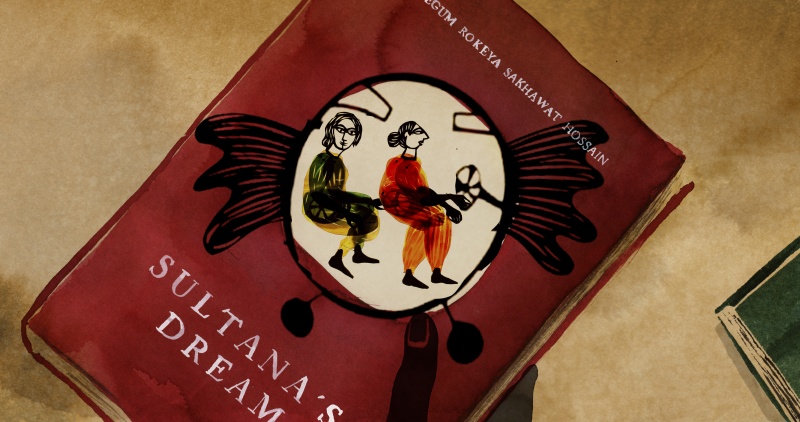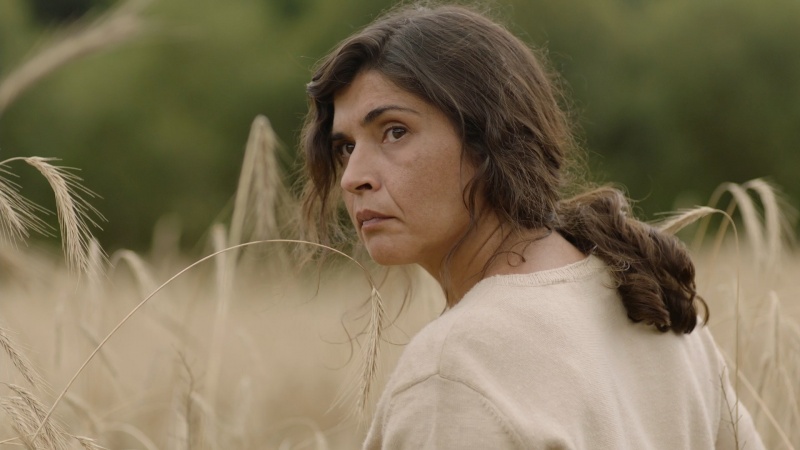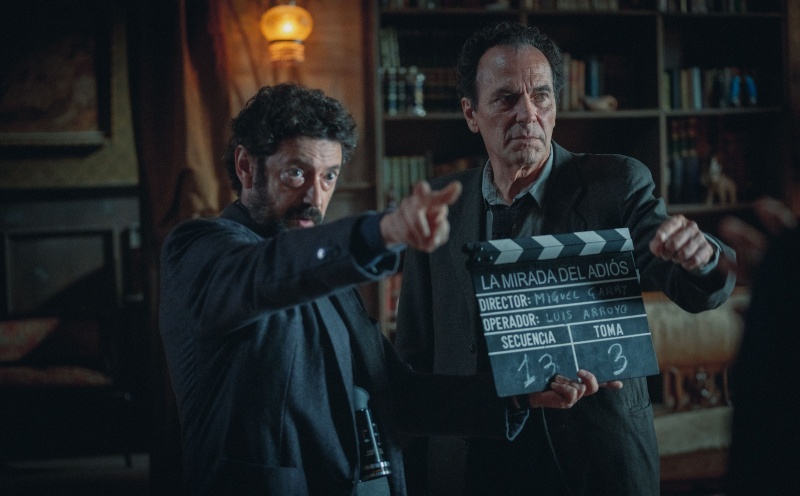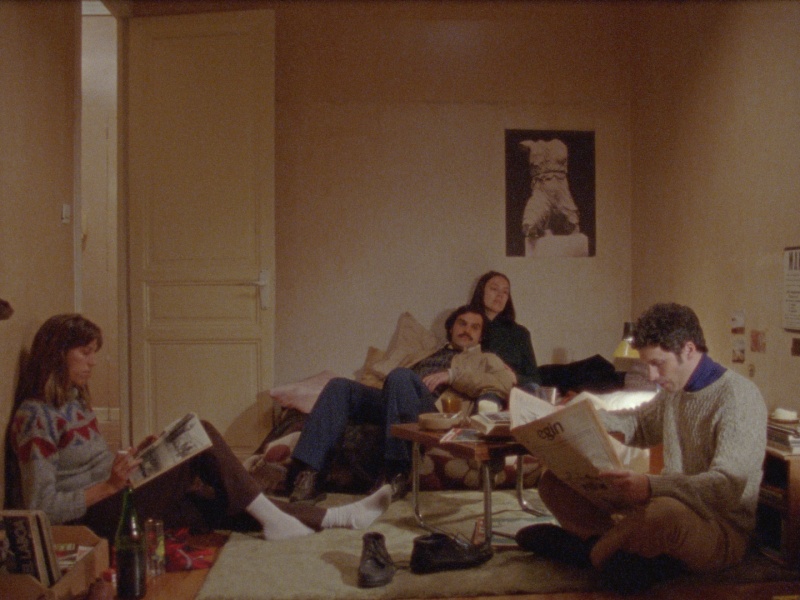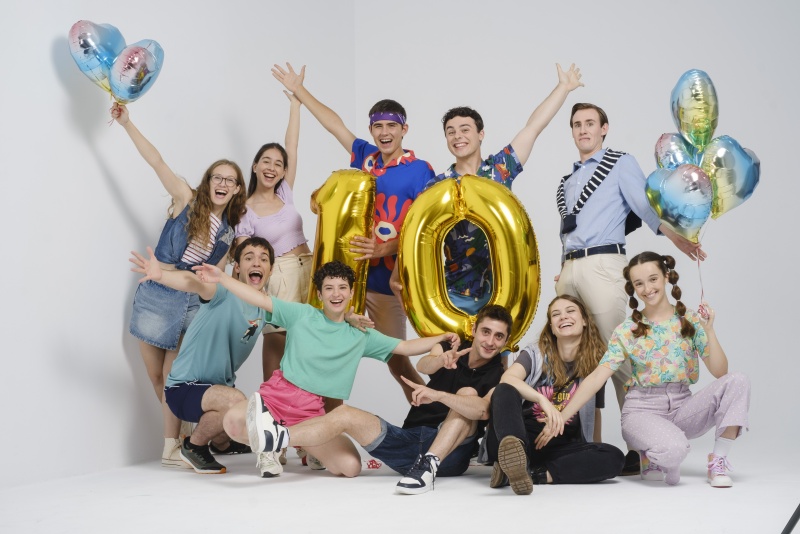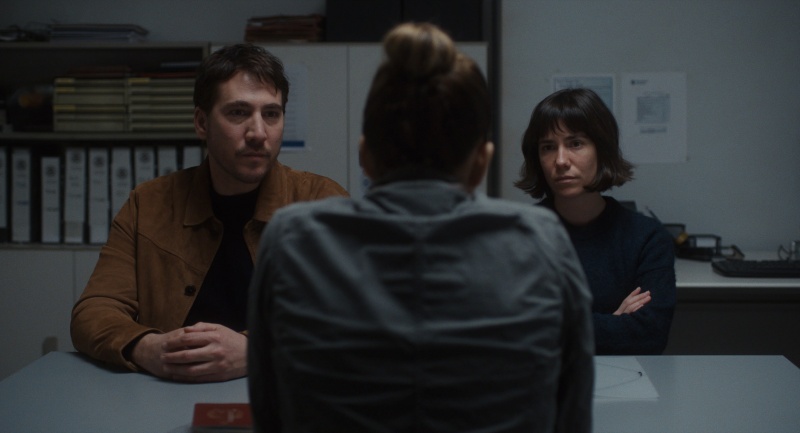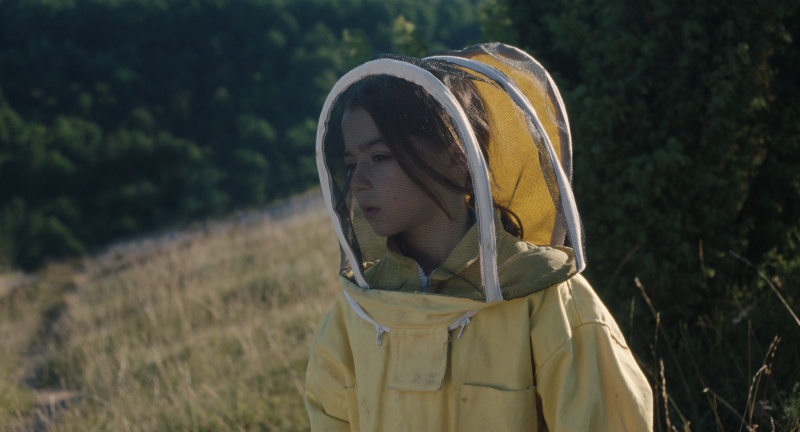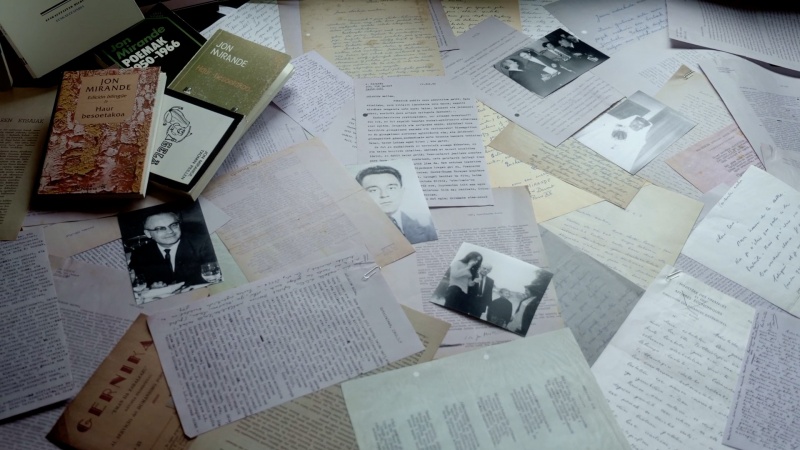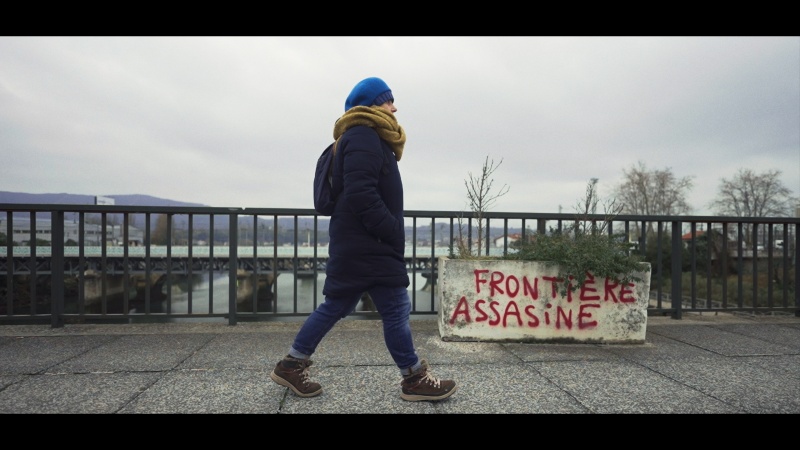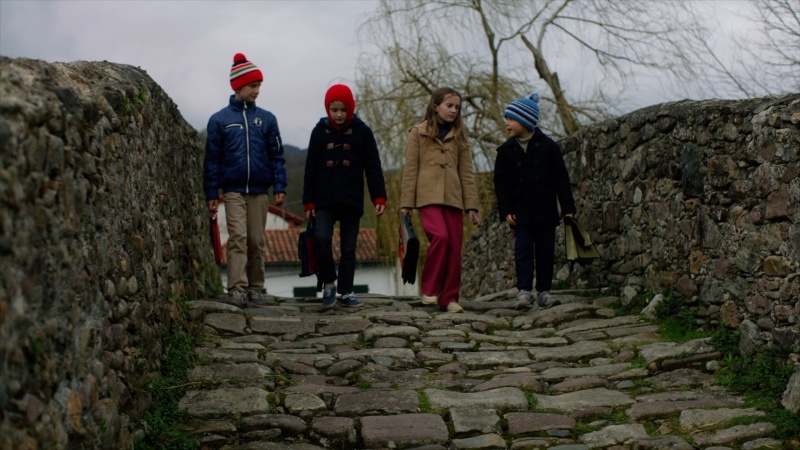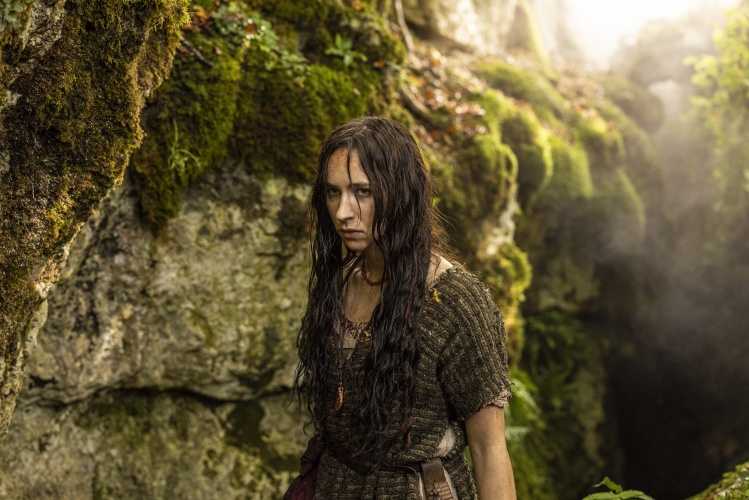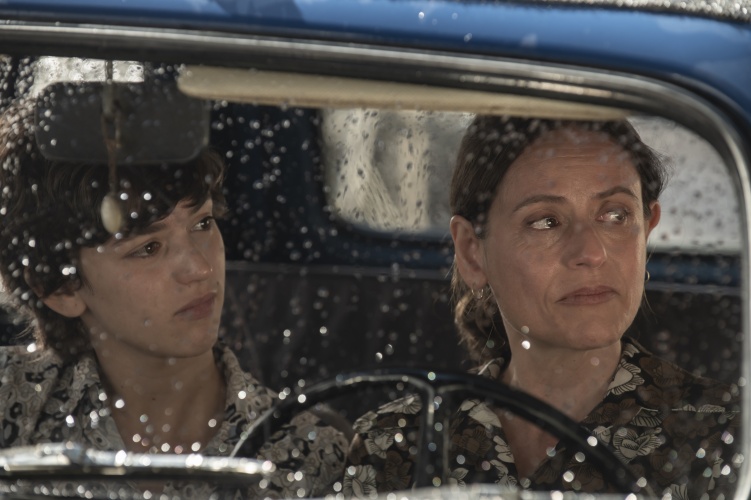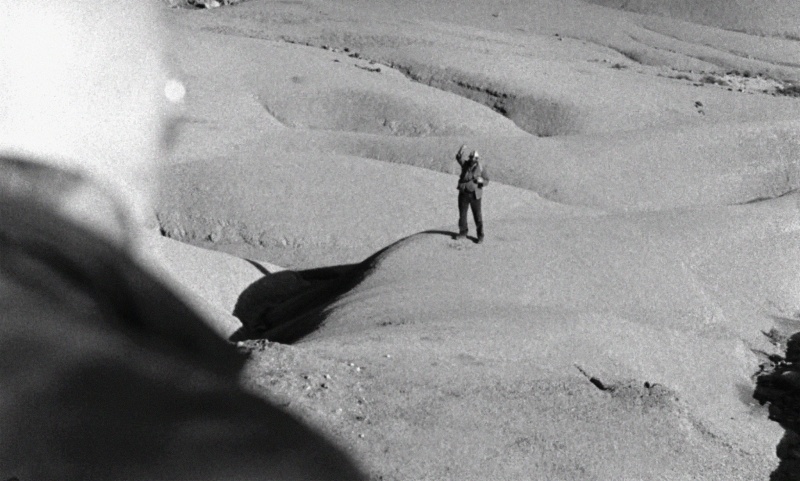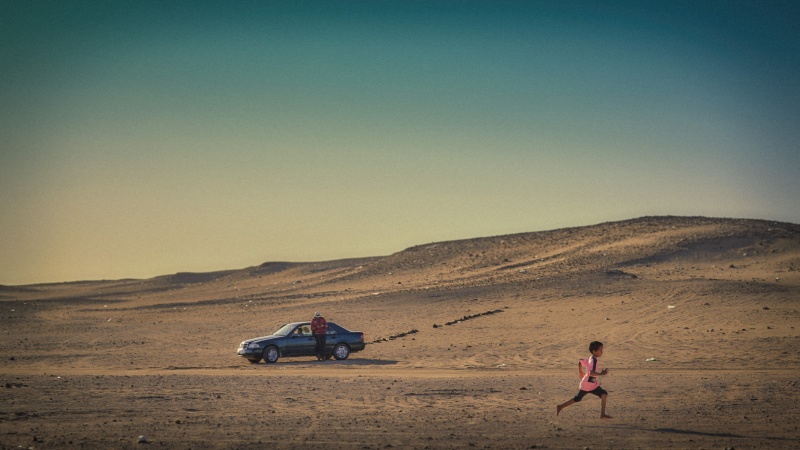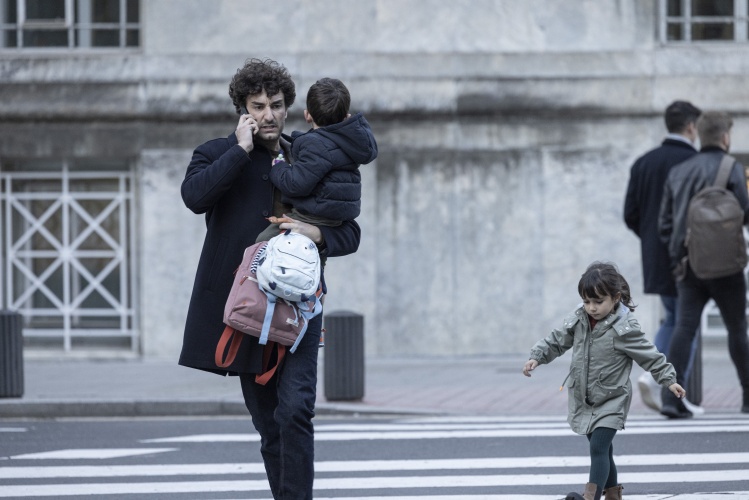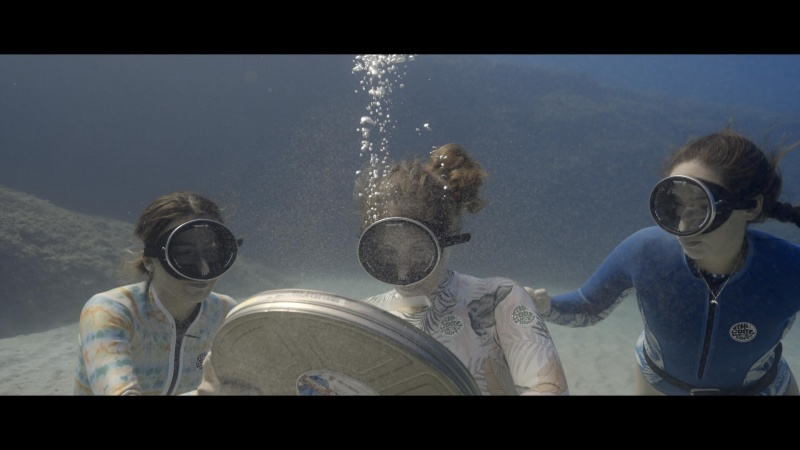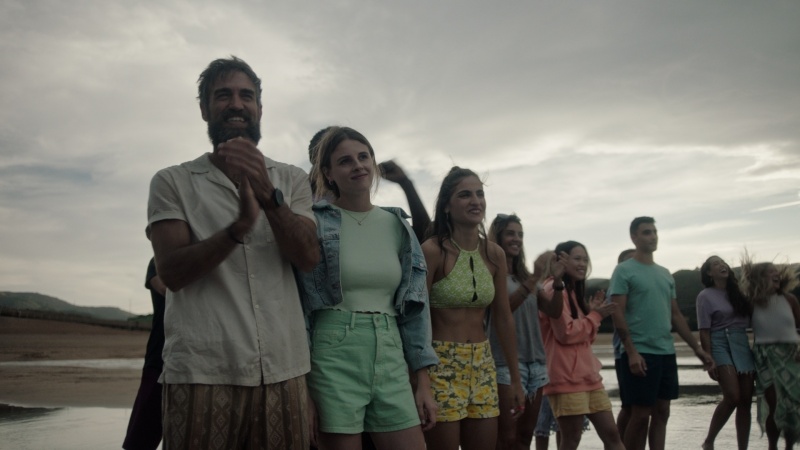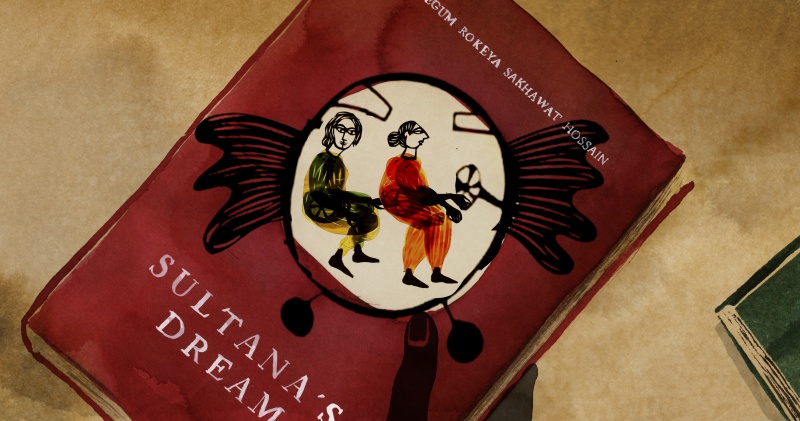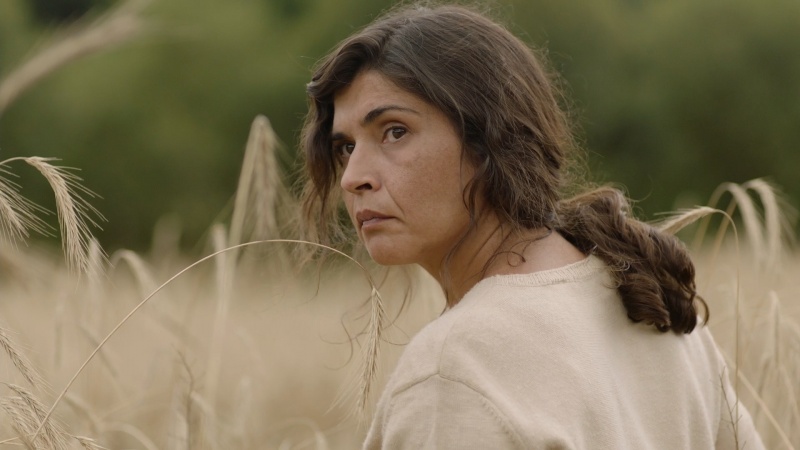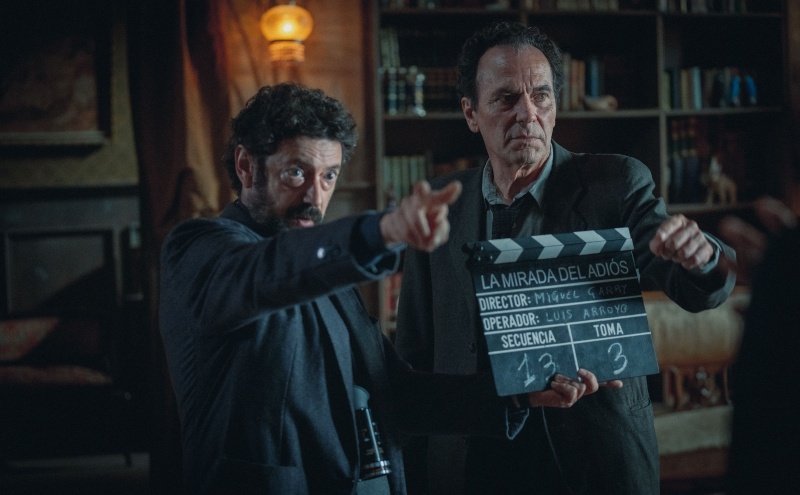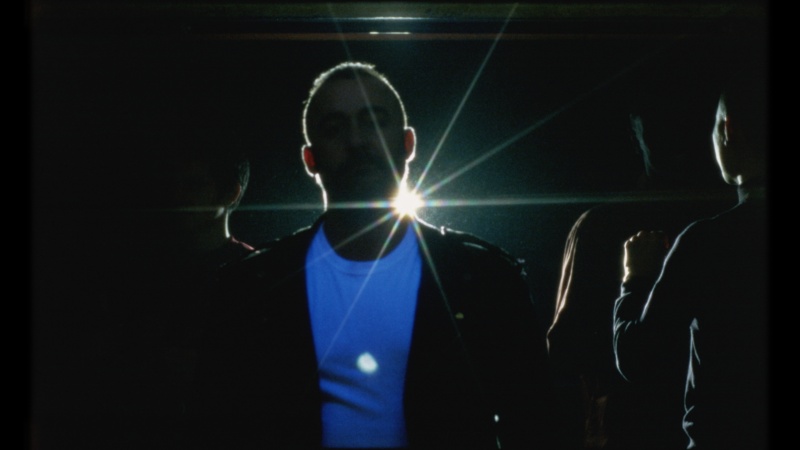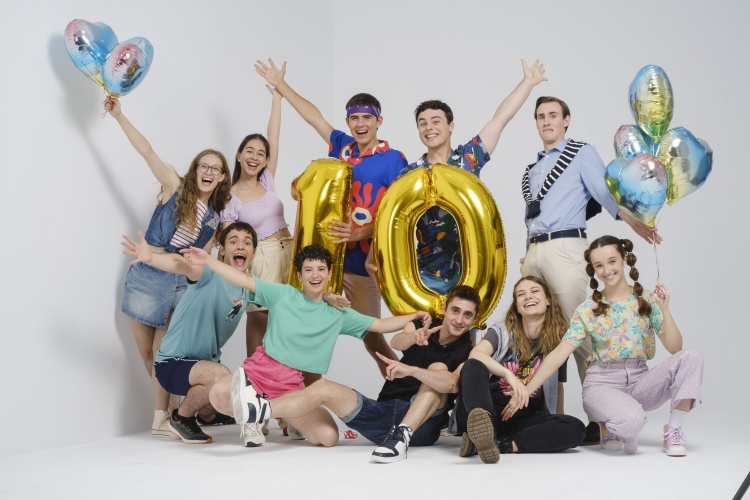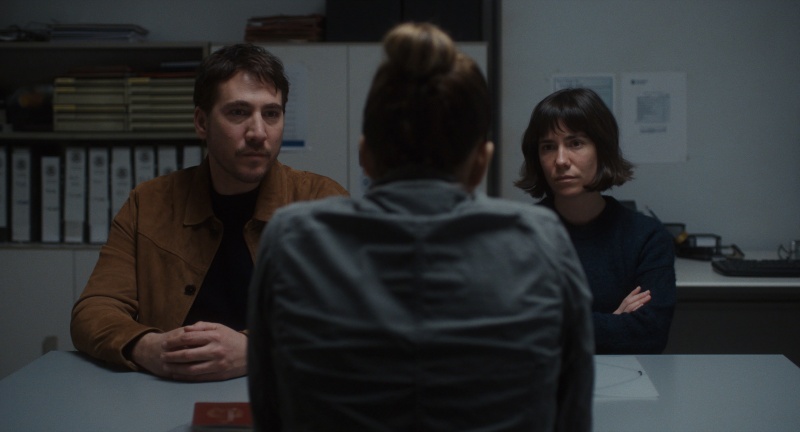Actor Paco Sagarzazu, an indispensable figure on Basque screens and stages, will receive the Zinemira Award in recognition of his career
A total of 19 titles –15 features, one medium-length film, one short and two series– make up the Basque participation in the 71st edition of the San Sebastian Festival, distributed between the Official Selection, Donostia Award Special Screenings, Zabaltegi-Tabakalera, Made in Spain, Zinemira, Velodrome and the Basque Cinema, EiTB and RTVE Galas.
Zinemira, the section specifically dedicated to Basque cinema, is organised by the San Sebastian Festival and the Basque Government Department of Culture. It is sponsored by Irizar and EiTB and has the collaboration of the Basque Film Archive, the EPE/APV and IBAIA producers associations, and Zineuskadi. This year, Urbil also joins as a collaborator. At this edition, Zinemira comes with nine fictions and non-fictions. Three of these, to have their world premiere at the Festival, will compete for the Irizar Basque Film Award together with another two works present in other Festival sections. A total of five productions will therefore compete for the prize money of 20,000 euros going to the film’s producer or producers.
Irizar Award contenders
The dramatic odyssey of migrants on their way to Europe is at the centre of Bidasoa 2018-2023, the latest documentary work from Fermin Muguruza (Irun, 1963). The filmmaker and musician from Gipuzkoa has shown his work in several of the Festival sections: Zabaltegi (Zuloak, 2012), Zinemira (Black is beltza, 2018) and the Velodrome (Black is beltza II: Ainhoa, 2022).
Another Zinemira regular is the moviemaker Josu Martinez (Bilbao, 1986), who, after showing titles including Sagarren denbora. 25 urte deserritik itzultzen (2010) and Paperezko hegoak (Paper Wings, 2021), returns to the section twofold: Bizkarsoro contains five true stories taking place in an imaginary town, while Mirande, film baterako zirriborroa, the Zinemira closing film, approaches the life and work of the writer Jon Mirande.
Competing for the Irizar Basque Film Award alongside the above-mentioned three titles are another two films included in other sections: the animated film El sueño de la sultana / Sultana’s Dream, feature debut from Isabel Herguera (Donostia, 1961) programmed in the Official Selection, and Arnasa betean, emakume zinegileak / A Deep Breath, Women Filmmakers, by Bertha Gaztelumendi (Irun, 1962) and Rosa Zufía (Tudela, 1958). In this film, programmed for Tuesday 26 September in the Victoria Eugenia Theatre as part of the Basque Cinema Gala, the two directors bring an immersion in cinema by Basque women.
Zinemira out of competition
Another six films will complete the Zinemira competition, but this time not as competitors due to having had their premiere prior to screening in San Sebastian. The section will open with 20.000 especies de abejas / 20,000 Species of Bees, the first feature from Estibaliz Urresola (Llodio, 1984) premiered at the Berlinale, where Sofía Otero bagged the Silver Bear for Best Leading Performance. It later went on to win the Golden Biznaga for Best Film and the Best Supporting Actress Award for Patricia López Arnaiz at Málaga Festival.
Also to screen out of competition is Irati, the second feature from Paul Urkijo Alijo (Vitoria, 1984), winner of the Audience Award both at Sitges and at the San Sebastian Horror Film Festival; Las buenas compañías / In the Company of Women, the second feature film from the actress Sílvia Munt (Barcelona, 1957), which competed at Málaga Festival; Misión a Marte / Mission to Mars, with which Amat Vallmajor del Pozo (Girona, 1996), alumni of Elías Querejeta Zine Eskola, participated in WIP Europa and bagged a mention at Gijón Festival before showing at the Berlin Critics’ Week; Tetuán, the latest work from Iratxe Fresneda (Bilbao, 1974) shown at events such as Gijón, Zinebi and Nantes; and Una vida no tan simple / Not Such an Easy Life, by Félix Viscarret (Pamplona, 1975), premiered at Málaga Festival.
Basque filmmakers in other Festival sections and galas
Competing for the Golden Shell in the Official Selection is O corno / The Rye Horn, second feature from Jaione Camborda (San Sebastian, 1984), which participated at its project stage in the Ikusmira Berriak residency programme, to show in Toronto prior to its screening at the Festival.
Víctor Erice (Karrantza, 1940), one of this year’s Donostia Awards and the first Basque filmmaker to receive the distinction, will show his return to feature films, Cerrar los ojos / Close Your Eyes, 50 years after landing the Golden Shell for his first solo-helmed feature, El espíritu de la colmena / The Spirit of the Beehive.
Zabaltegi-Tabakalera will include two Basque productions, the world premiere of the medium-length Mamántula, directed by Ion de Sosa (Urnieta, 1981), and the short film Contadores, by Irati Gorostidi (Eguesibar, 1988), which participated in the Semaine de la Critique at Cannes and figured in last year’s Kimuak catalogue. Gorostidi is currently working on her first feature, Anekumen, selected for Ikusmira Berriak 2022 as well as for other mentoring programmes and markets.
Included in Made in Spain, Upon Entry / La llegada, which has Basque production, is the feature debut from Alejandro Rojas (Caracas, Venezuela. 1976) and Juan Sebastián Vásquez (Caracas, Venezuela. 1981), starring Alberto Ammann, winner of the Silver Biznaga for Best Performance by a Male Actor at Málaga Festival.
The Velodrome will also host the premiere of the tenth season of the musical teen series by EiTB Go!azen,whose autumn premiere will see the series pass the 100 episodes mark.
Chinas, the latest movie directed by Arantxa Echevarría (Bilbao, 1968), will participate in the RTVE Galas.
The EiTB Gala, programmed for Wednesday 27 September at the Victoria Eugenia Theatre, will host the premiere of Itxaso, the latest fiction series in Basque from EiTB, starring Jon Plazaola, Nerea Mazo, Itziar Atienza, Jon Mendia and Nerea Garmendia, and set in the world of surf.
Projects
While not screening in cinemas, other Basque productions at the project stage can be found at the Festival, such as La última noche de un erasmus en Roma / An Erasumus Student's Last Night in Rome, the film being prepared by David Pérez Sañudo (Bilbao, 1987) at the Ikusmira Berriak residency, and projects like the one Bonzo Studios will present at Zinemadia Startup Challenge..
ZINEMIRA
Section dedicated to Basque film organised by the San Sebastian Festival and the Basque Government Department of Culture, with the sponsorship of Irizar and EITB; and the collaboration of Urbil, the Basque Film Archive, EPE/AVE, IBAIA and Zineuskadi.
Eight-year-old Cocó struggles to meet others' expectations and can't understand why. Everyone around the child uses the name Aitor, a name that feels foreign to Cocó. Ane, the siblings' mother will take advantage of the holidays to take her three children to the house where her mother Lita and her aunt Lourdes live, with close ties to beekeeping. This summer that will change their lives will oblige these women from three very different generations to confront their doubts and fears.
"In the mid 20th century Jon Mirande demonstrated with his prose that the Basque language was capable of producing cultured, universal literature. Everybody recognises its importance. But it is still a taboo subject. De Mirande is said to have been a racist. A paedophile. Nazi. Misogynist. Immoral. Every time his name is mentioned, fiery controversies break out. We don't know what to do with him. I want to make a film about Mirande. But I don't know how. Perhaps it would be more interesting to give him the floor". (Josu Martinez)
Police control and the closure of certain crossings on the Bidasoa river, natural border of the Pyrenées-Atlantiques Department, imposed by France in summer 2018 to prevent the entrance of immigrants on their way to other European countries, caused 10 deaths in a single year. Seven people died from April 2021, drowned in the waters of the River Bidasoa between Irun and Hendaia, while another three lost their lives in October 2021, hit by a train in Ziburu. This documentary, as well as putting a voice and face to several of the activists who work on either side of the river, as representatives of the Harrera Sarea (Reception Network) and Bidasoa Etorkinekin (The Bidasoa with Migrants) associations, also recalls those who lost their lives, giving them a name and an age, following their journey and their dreams, discovering the history and the people behind the cold figures of the deceased, giving the tragedy a more human aspect.
In a non-existent town, five true stories based on oral testimonials and texts by writers take place between 1914 and 1982. Through them, we see the social changes experienced throughout the 20th century by a small town in the Northern Basque Country, the deep-rootedness and approximation of a language, and the struggle for survival.
Eighth century. Christianity is spreading throughout Europe, while pagan beliefs are disappearing. After the attack of the Franks, and with the Carolingian army almost over the Pyrenees, the local bailiff turns to an ancient goddess for help. Thanks to a blood compact, and in exchange for his own life, he defeats the enemy; however, before dying, he makes his son Eneko promise that he will protect his people and guide them in the new era. A few years later Eneko will try to keep his promise by completing a mission: to recover his father's body.
Summer 1977. Bea is 16 and joins the winds of change blowing through the country; she collaborates with a group of women to raise awareness of the feminist cause, and to help them have an abortion in decent conditions. The rebelliousness boiling in her blood will mingle with an unexpected feeling and turn her life upside down: she falls in love with a girl a little older than herself and from a good family. What she doesn't realise is that this mysterious girl, Miren, has a secret that will catapult Bea directly into the painful world of adults.
Txomin, an unemployed Basque archaeologist, receives a commission to provide an expert's report on Mars. With his brother Gene at the wheel, they leave Eibar on an adventure through northern Spain. When Gene's frail health and a mysterious toxic mist make them lose their way, they turn to their sister Mila. The reunion between the three awakens old family gripes as Gene's health continues to decline. With the help of a few ghosts and Jesus Christ himself, the two brothers decide to complete their mission.
With a film based on real-life experiences, Iratxe Fresneda takes us on a personal voyage. Past and present come together in an emotional and sensory audiovisual experience.
Today Isaías runs back and forward between the park where he plays with his kids and his architecture studio, where he complains to his colleague Nico. No matter where he is, Isaías feels he should be somewhere else. And when he's with Ainhoa, his wife, they realise just how tiring children can be when they're so young. In the park, he makes friends with Sonia, the mother of another child, from whom he learns that raising children and coming of age isn't that easy. It never was.
BASQUE FILM GALA
At last we are starting to hear the voice of women in the cinema. We celebrate it with this documentary on the Basque women moviemakers of yesterday and today, giving a global overview of the subject. Three female divers guide us through the topic of their films, their points of view, their dreams, their efforts to get somewhere, their contribution to the cinema and to society. We discover the female pioneers, and are surprised by the work of older women filmmakers or of the younger ones who are now enjoying success at festivals.
EiTB GALA
Itxaso is 17 and lives in Mexico. However, when her mother dies, she has no option but to move to a coastal village in the Basque Country to live with her father Mikel. Mikel is a former surf champion who runs a small school. He is a man that Itxaso doesn't know and that she will be forced to get along with no matter how different they are.
OFFICIAL SELECTION - In competition
Taking her inspiration from a feminist sci-fi short story written in Bengal in 1905, Inés sets out on a voyage of discovery around India in search of Ladyland, the Utopian land of women.
Illa de Arousa, 1971. Maria is a woman who earns a living harvesting shellfish. She is also known on the island for helping other women in childbirth with special dedication and care. After an unexpected event, she is forced to flee and sets out on a dangerous journey that will make her fight for her survival. Seeking her freedom, Maria decides to cross the border by one of the smugglers' routes between Galicia and Portugal.
DONOSTIA AWARD SCREENING
A famous Spanish actor, Julio Arenas, vanishes during a movie shoot. Although his body is never found, the police conclude that he had some kind of an accident on the seashore. Several years down the line, this mystery of sorts returns to front page news when a TV programme looking back at the actor shows exclusive images of the last scenes in which he participated, filmed by his close friend, the director Miguel Garay..
ZABALTEGI-TABAKALERA
During the 1978 negotiations for a new bargaining agreement in the metalworking sector, a group of militant libertarians defend their radical stance before their factory workmates while looking on crestfallen as the workers’ movement falls to pieces.
Mamántula is the boy everyone wants, but he is also, secretly, a giant spider cross-dressed as a human, fruit of a brief encounter in a far-off paradise. In an alternative past of brutalist saunas, never-ending subway corridors and detectives in trench coats and hats, each of Mamántula's lovers succumb to the insatiable lust of blood and semen; yet another thread in the stellar spider's web he is weaving so that he can return to the dimension to which he belongs.
VELODROME
Although born as a TV film, this year Go!azen enters its 10th season. In each one, the first musical series produced in the Basque Country brings a new summer at the Basakabi camp, with covers of well-known songs old and new. This year's season is once again packed with laughs and adventures. Presentation of the first episode of the tenth season.
RTVE GALA
The tale of two 9-year-old Chinese girls told parallel to one another. The two start school in Madrid: they look alike, but they are very different: Lucia is the daughter of immigrants. She feels Spanish, she wants to fit in, but her parents don't speak Spanish and they work all day long. They don't even want her to celebrate her birthday at Burger King. Xiang is adopted. She attracts attention wherever she goes with her Spanish parents. She feels neither Chinese nor accepted by the children at school.
MADE IN SPAIN
Diego, a Venezuelan town planner, and Elena, a contemporary dancer from Barcelona, travel to the United States, with their visas approved, to start a new life. But on coming to the immigration zone of Newark airport, they are taken to the secondary inspection room, where two border protection officers subject them to an inspection and psychologically draining interrogation in the attempt to find out if the couple has anything to hide.
'Primeran' Platform |
At today’s press conference in Tabakalera, the director of ETB Unai Iparragirre revealed the first details of Primeran, the new streaming platform to launch this week. Virtually all of the content on the platform will broadcast in Basque and, among other specific sections, it will have one dedicated to the Basque films to have participated in the San Sebastian Festival in recent decades.
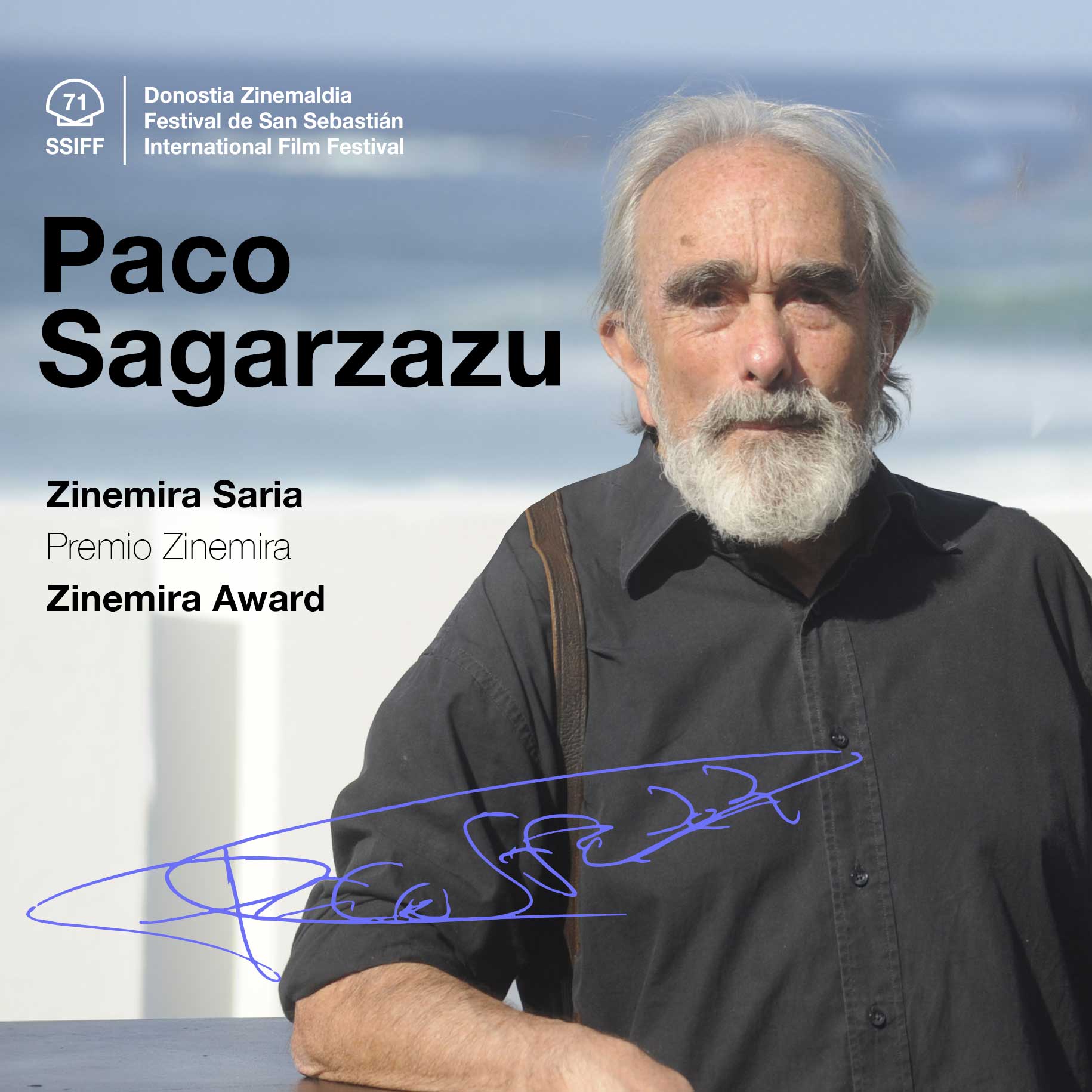
Zinemira Award: Paco Sagarzazu
The Zinemira Award, to be presented at the Basque Cinema Gala, is the honorary award given by the San Sebastian Festival and the EPE/APV and IBAIA producers associations to the career of an outstanding figure, programme or institution in the world of Basque cinema. Until now, it has recognised the careers of Imanol Uribe (2009), Álex Angulo (2010), Elías Querejeta (2011), Michel Gaztambide (2012), Juanba Berasategi (2013), Pedro Olea (2014), Karmele Soler (2015), Ramón Barea (2016), Julia Juaniz (2017), Ramón Agirre (2018), Jose María Txepe Lara (2019), Sara Bilbatua (2020), the Kimuak programme (2021) and Txema Areizaga (2022). This year the Festival and the producers associations have decided to pay tribute to the actor Paco Sagarzazu, an indispensable figure on Basque screens and stages in the last 40 years.
Paco Sagarzazu (San Sebastian, 1940) had his first experience with the cinema when his theatre play Balantzatxoa was taken to the screen in 1976 by director Juanmi Gutiérrez and became the first movie for children to be shot in the Basque language. The following year he won the Ciudad de Irun Prize with his novel Para no sé quién. While working for Radio Popular as a presenter, writer and scriptwriter of comedy programmes, he went along to the casting for La fuga de Segovia (Imanol Uribe, 1981) where he was chosen to play the part of one of the prisoners.
Since then, his name has been linked to Basque cinema as a luxury member of the cast in projects by moviemakers such as Montxo Armendáriz (Tasio, Official Selection, 1984), Eloy de la Iglesia (Otra vuelta de tuerca, Official Selection, 1985), Ana Díez (Ander eta Yul, New Directors, 1988), Daniel Calparsoro (Salto al vacío / Jump into the Void, Made in Spain, 1995), Antonio Mercero (La hora de los valientes, Made in Spain, 1998), Gracia Querejeta (Cuando vuelvas a mi lado / By My Side Again, Official Selection 1999), Karra Elejalde and Fernando Guillén Cuervo (Año mariano, 2000), Javier Fesser (La gran aventura de Mortadelo y Filemón, Made in Spain, 2003), Asier Altuna and Telmo Esnal (Aupa Etxebeste!, New Directors, 2005), Álex de la Iglesia (Balada triste de trompeta / The Last Circus, Made in Spain, 2010) and Aritz Moreno (Ventajas de viajar en tren / Advantages of Travelling by Train, 2019).
For decades, Sagarzazu has been a regular face in countless Basque short film projects, such as Alsasua 1936 (Helena Taberna, 1994), Muerto de amor (Ramón Barea and José María Lara, 1997), Txotx (Asier Altuna and Telmo Esnal, 1997), Cotton Candy (Aritz Moreno, 2009), Él nunca lo haría (Anartz Zuazua, 2009), Artalde (Asier Altuna, 2010) and Cólera (Aritz Moreno, 2013), among many others. He has also worked in TV series including El comisario, Policías, Hospital Central and Cuéntame cómo pasó, and has an important career in theatre, where he has starred, among other functions, in El florido pensil, El hombre que confundió a su mujer con un sombrero, Las sillas, Las criadas and Cabaret latino.
Basque, Spanish and English in all Official Selection screenings at the K1 |
From this year on, all films in the Official Selection programmed at the Kursaal 1 can be enjoyed in San Sebastian Festival’s three official languages: Basque, Spanish and English. This means that each film will be screened in its original version and will come with subtitles in said languages where required.
Films spoken partially or totally in basque |
- 20.000 ESPECIES DE ABEJAS / 20,000 SPECIES OF BEES by Estibaliz Urresola (Zinemira)
- 592 METROZ GOITI / ABOVE 592 METRES by Maddi Barber (Zinemaldia + Plus)
- ARNASA BETEAN, EMAKUME ZINEGILEAK / A DEEP BREATH, WOMEN FILMMAKERS by Bertha Gaztelumendi and Rosa Zufía (Basque Film Gala)
- BIDASOA 2018-2023 by Fermin Muguruza (Zinemira)
- BIZKARSORO by Josu Martinez (Zinemira)
- EL SUEÑO DE LA SULTANA / SULTANA'S DREAM by Isabel Herguera (Official Selection)
- GO!AZEN by Jabi Elortegi Gametxo and Itziar Gomez Sarasola (Velodrome)
- IRATI by Paul Urkijo Alijo (Zinemira)
- ITXASO by Antonio Diaz Huerta (EiTB Gala)
- KE ARTEKO EGUNAK by Antxon Eceiza (Zinemaldia + Plus)
- LAS BUENAS COMPAÑÍAS / IN THE COMPANY OF WOMEN by Silvia Munt (Zinemira)
- LAS CHICAS ESTÁN BIEN / THE GIRLS ARE ALRIGHT by Itsaso Arana (Made in Spain)
- MIRANDE, FILM BATERAKO ZIRRIBORROA / MIRANDE by Josu Martinez (Zinemira)
- SORBELTZA by Iban del Campo (Zinemira-Kimuak)
- TETUÁN by Iratxe Fresneda (Zinemira)
- XIMINOA / THE MONKEY by Itziar Leemans (Zinemira-Kimuak)
Children's films dubbed into Basque |
The Movies for Kids section offers a selection of five films for an audience of children to be screened in Basque, thanks to the collaboration of Zineuskadi as part of the Zinema Euskaraz (Cinema in Basque) programme.
- AINBO: AMAZONIAKO GERRARIA / AINBO: SPIRIT OF THE AMAZON by José Zelada and Richard Claus
- BARRASKILOA ETA BALEA ETA ITSASOKO BESTE IPUIN BATZUK / THE SNAIL AND THE WHALE by Max Lang
- DORAEMON MOVIE: NOBITAREN DINOSAURIO BERRIA / DORAEMON THE MOVIE: NOBITA’S NEW DINOSAUR by Kazuaki Imai
- GABI, 8 URTETIK 13 URTERA / GABI: BETWEEN AGES 8 AND 13 by Engeli Broberg
- ILARGIRANTZ / MOONBOUND by Ali Samadi Ahadi
- SUPERHEROIEN FAMILIA / JUST SUPER by Rasmus A. Siversten
Furthermore, and thanks to the collaboration with the Donostia International Physics Center (DIPC) and the Filmoteca Vasca, the Festival will run every morning a screening for Gipuzkoa school children at the Velodrome of Leon Ding’s film Boonie Bears: Abentura Historiaurrean / Boonie Bears: Blast Into the Past, dubbed into Basque.
Films in other sections with subtitles in Basque |
- ALL DIRT ROADS TASTE OF SALT by Raven Jackson
- CHUN XÍNG / A JOURNEY IN SPRING by Tzu-Hui Peng and Ping-Wen Wang
- DANCE FIRST by James Marsh (Closing Film – Out of Competition)
- EL SUEÑO DE LA SULTANA / SULTANA’S DREAM by Isabel Herguera
- EX-HUSBANDS by Noah Pritzker
- FINGERNAILS by Christos Nikou
- GREAT ABSENCE by Kei Chika-Ura
- KALAK by Isabella Eklöf
- KIMITACHI WA DO IKIRU KA / THE BOY AND THE HERON, by Hayao Miyazaki (Opening Film – Out of Competition)
- L’ÎLE ROUGE / RED ISLAND by Robin Campillo
- LA MESÍAS by Javier Calvo and Javier Ambrossi (Out of Competition)
- LA PRÁCTICA / THE PRACTICE by Martín Rejtman
- LE SUCCESSEUR / THE SUCCESSOR by Xavier Legrand
- MMXX by Cristi Puiu
- O CORNO / THE RYE HORN by Jaione Camborda
- PUAN by María Alché and Benjamín Naishtat
- THE ROYAL HOTEL by Kitty Green
- THEY SHOT THE PIANO PLAYER by Fernando Trueba and Javier Mariscal (Special Screenings Out of Competition)
- UN AMOR by Isabel Coixet
- UN SILENCE / A SILENCE by Joachim Lafosse
- ASHIL / ACHILLES by Farhad Delaram
- BAHADUR THE BRAVE by Diwa Shah
- LAST SHADOW AT FIRST LIGHT by Nicole Midori Woodford
- LES RAYONS GAMMA / GAMMA RAYS by Henry Bernadet
- CAMPING DU LAC by Éléonore Saintagnan
- DUAN PIAN GU SHÍ / SHORT STORY by Lang Wu
- GAMOPITULI KHALKHI / WE ARE THE HOLLOW MEN by Rati Oneli
- HERE by Bas Devos
- L'ÎLE / THE ISLAND by Damien Manivel
- LA PALISIADA by Philip Sotnychenko
- OYU by Atsushi Hirai
- OR PANAS YACHID / SINGLE LIGHT by Shaylee Atary
- SĪLAN by Ashmita Guha Neogi
- SUIGYO NO MAJIWARI / TWO OF US by Kohei Igarashi
- XUE YUN / ABSENCE by Lang Wu
- KUOLLEET LEHDET / FALLEN LEAVES by Aki Kaurismäki
- PAST LIVES by Celine Song
- THE ZONE OF INTEREST by Jonathan Glazer
- ROTER HIMMEL / AFIRE by Christian Petzold
- NANG FANG NANG FANG / BACK TO THE SOUTH by Xiao Haiping
- SHE CHEF by Melanie Liebheit and Gereon Wetzel
- MOETSUKITA CHIZU / THE MAN WITHOUT A MAP
- OTOSHI-ANA / THE TRAP
- SAMA SORUJA / SUMMER SOLDIER
- SHIN ZATO-ICHI. NIJI NO TABI / ZATO-ICHI NEW SERIES. WANDER OF THE RAINBOW
- SHIN ZATO-ICHI. YUME NO TABI / ZATO-ICHI NEW SERIES. WANDER OF THE DREAMS
- SUNA NO ONNA / WOMAN IN THE DUNES
- TANIN NO KAO / THE FACE OF ANOTHER
Zinemira Kimuak (Exclusively for professionals) |
The Zinemira section will include the short film selection for the 2023 programme of Kimuak, an initiative of the Basque Government Department of Culture and the Filmoteca Vasca, which has the vocation to disseminate the best Basque short films of the year. This year the Kimuak selection includes seven short films:
- DEADLY DRAW by Nitya López
- EL APRENDIZ by Raúl Campos
- EL REY DE LA SEMANA by David Pérez Sañudo
- LA MUJER ILUSTRADA / THE ILUSTRATED WOMAN by Isabel Herguera
- PRIORIDADES / PRIORITIES by Tamara Lucarini
- SORBELTZA by Iban del Campo
- XIMINOA / THE MONKEY by Itziar Leemans

